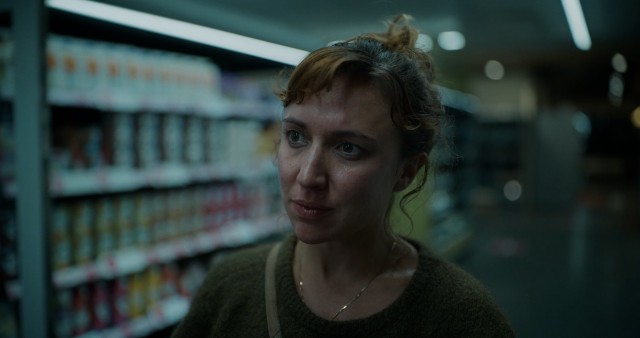The transition from carefree individual to responsible parent is a difficult one. While I can attest to the struggles of fatherhood, the experience of becoming a mother is one I’ll never be able to personally experience. Despite observing the hurdles they face firsthand, the physical and psychological transformations a new mother undergoes pose a profound test for anyone, whatever their disposition. Released in time for International Women’s Day, Geej Ower’s impactful short film Five Weeks aims to present a realistic portrayal of that early induction into motherhood, hoping to prove to all the new mothers out there that they are not alone.
“The narratives around postpartum mental health are often over-dramatised and taken to the extreme”
“I’ve always felt like that early period of motherhood has been misrepresented on screen”, Ower explains as we discus the origins of her short film. Adding that she felt “the narratives around postpartum mental health are often over-dramatised and taken to the extreme”, the writer/director set out to make something that showed a much more authentic glimpse into this challenging time. “I wanted to tell a truer, smaller story but one with dangerously high stakes”, says Ower. “One where on this particular day, in a moment of utter despair, she just makes a terrible decision”.
At the beginning of Five Weeks it’s not immediately clear what this “terrible decision” is. As we witness the short’s central character, Jen, as she drives down the road, brow furrowed and face rigid with tension, it’s only when her phone rings that she snaps out of whatever trance she was in. The phone call – a mundane conversation where Jen keeps repeating how “fine” she is – reveals nothing, but as she locks eyes with a dying fox on the roadside we’re left with no doubt that all is certainly not fine in her world.
It’s only when she bumps into the mother of an old friend at the supermarket that we start to put the pieces of the puzzle together. That vacant, tired stare is the look of a new mother, but where is the baby? And is that troubled expression just due to tiredness, or is there more to it? “I realised that in reality the dangers lie in the everydayness of this time; the claustrophobia and monotony, the sleep deprivation, and the exhaustion of trying to cope”, Ower reveals as we explore the motivation behind her story. “All this in combination with the pressure to appear like you’re in control and enjoying this time can leave many women in a really vulnerable space hidden from view”.

Esther Smith puts in a powerful performance and struggling new mother Jen
With the short’s central character on-screen for almost every shot in the film’s 13-minute run-time, the success of the narrative rests on strong direction and a powerful performance from lead actor Esther Smith. Ower knew Five Weeks had to be an immersive and all-consuming experience, to really put her viewer in the headspace of her strung out mother, and she achieves this through long, intense takes, making us feel as if we’re at Jen’s side for the entire duration of the film. But, it’s Smith’s performance that truly stands out. Her depiction of a woman teetering on the edge is so authentic that it elicits genuine empathy for Jen. Every strained conversation, every attempt to hold back tears, urges viewers to root for her, willing her to ask for help, as she grapples with the challenges every new mother faces.
co-produced by Stink Films and MrMr, on the surface Five Weeks may appear a simple production, but if you’ve experience of filmmaking then you’ll recognise the difficulties that come with a performance-based short brought to the screen through those long takes. Ower also lists “a fast moving car scene, a real supermarket location that was open during filming (lots of nosey locals doing their weekly shop), a seven week old baby, and a timeline that had to go from day to night”, as just some of the hurdles they met along the way. However, these challenges, didn’t stop the director and her crew from creating an impressive and important short. While the team here at S/W were all impressed with the quality of production and the weight of that central performance, we also hope to help spread the key message of the film, so new mothers know that they aren’t the only ones struggling.

 Rob Munday
Rob Munday